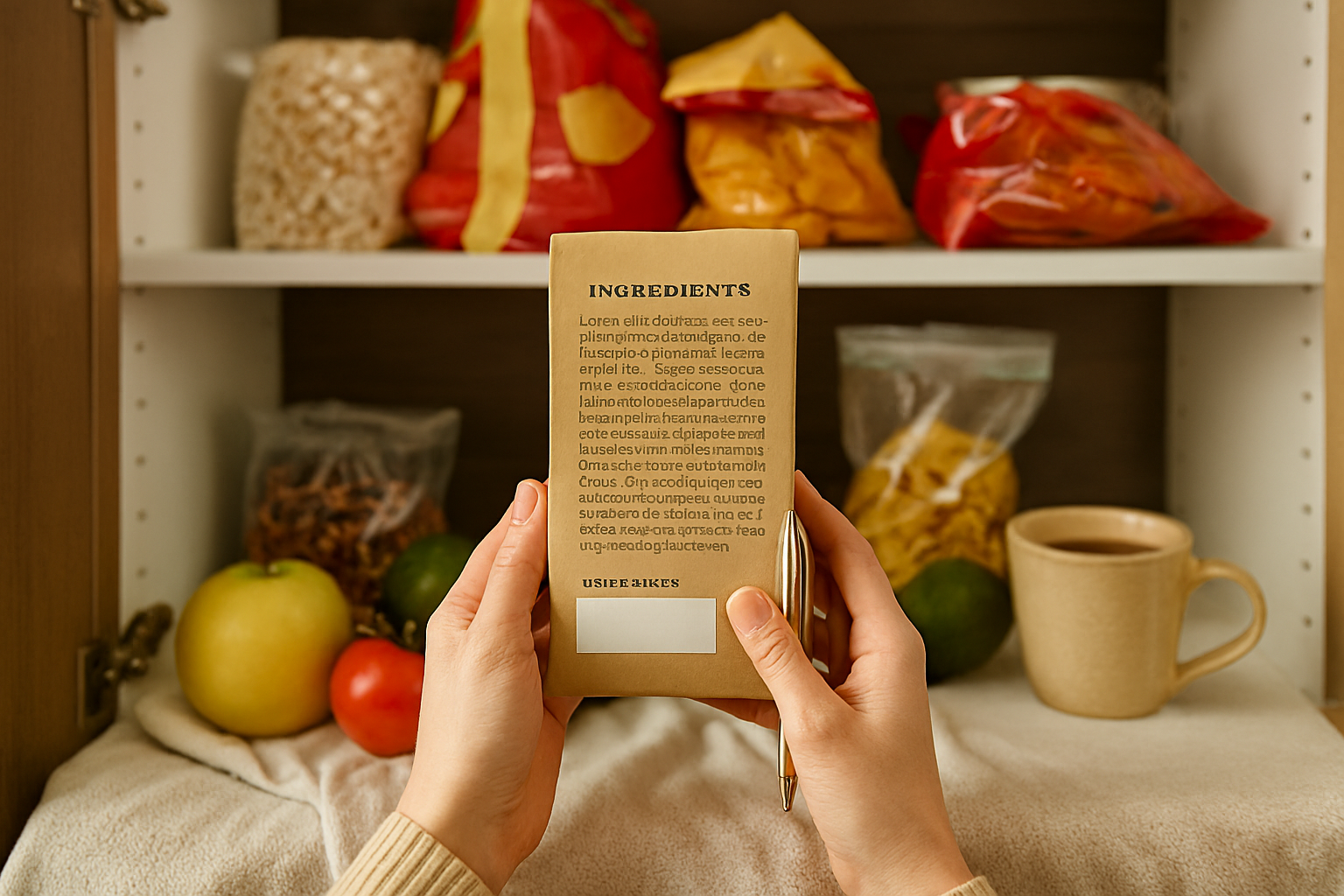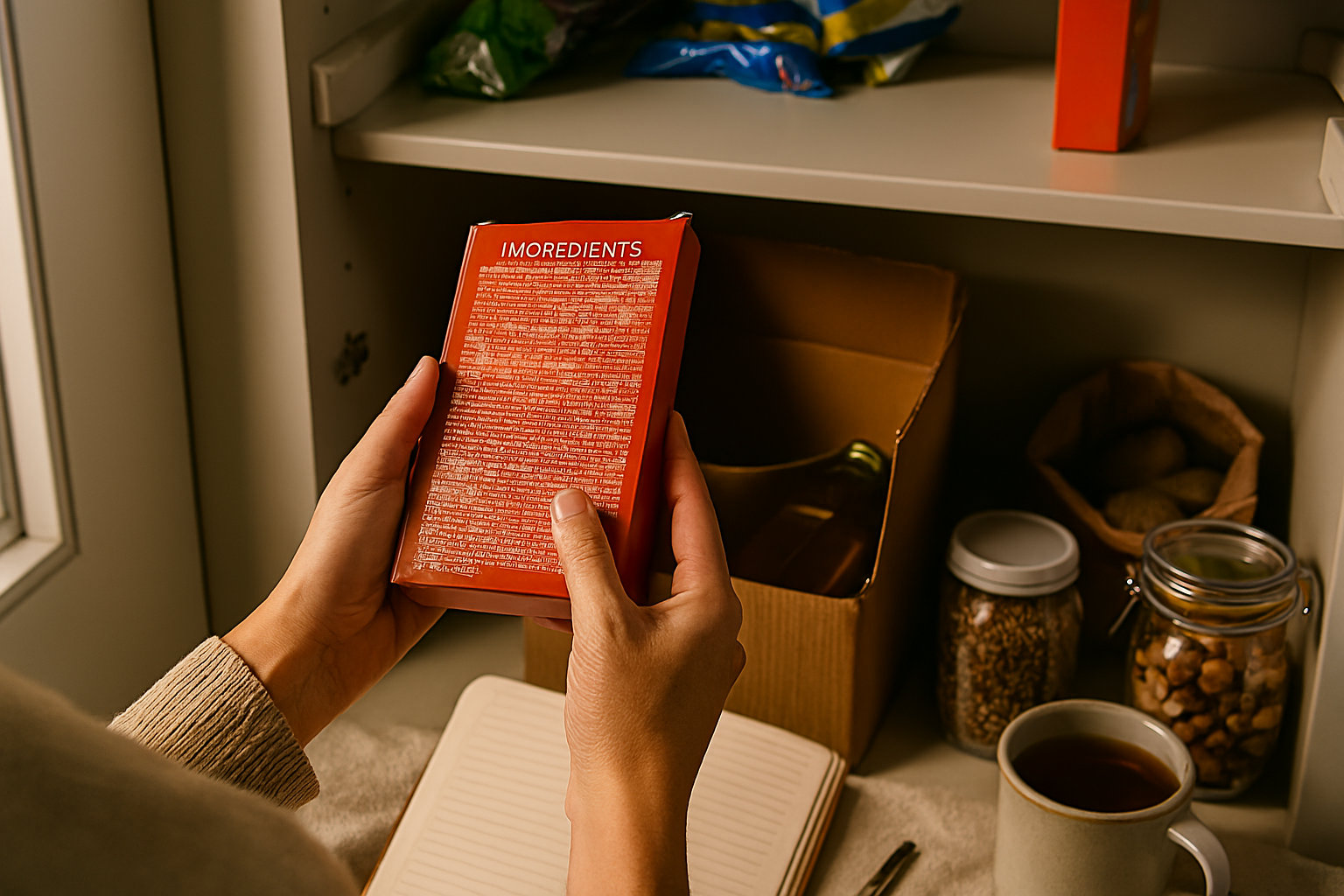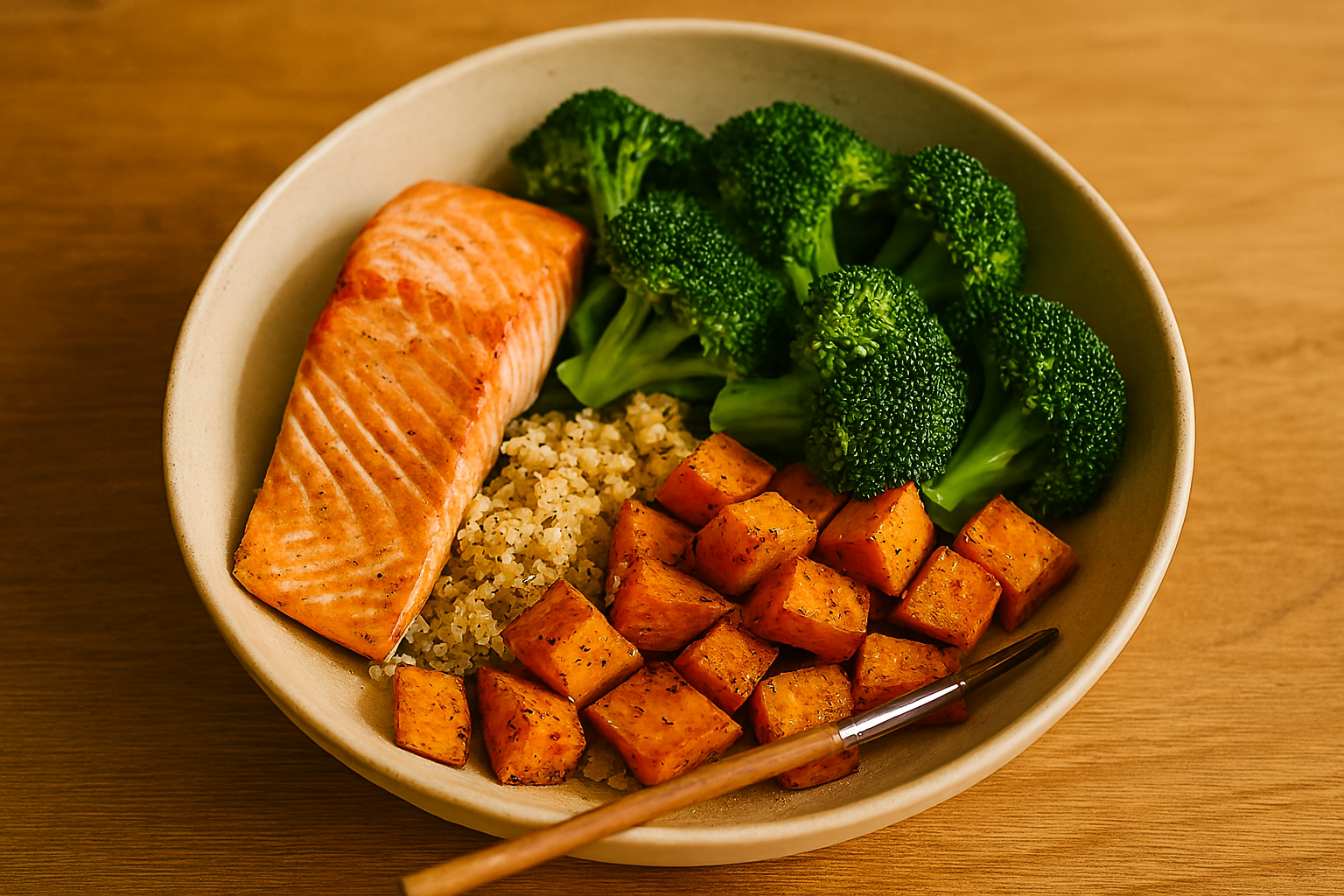I Gave Up Ultra-Processed Foods for 30 Days, Here's What Happened.

Like most of us, I did not realize how many ultra-processed foods were sneaking into my daily routine until I decided to cut them out. What began as a casual conversation with my doctor about persistent afternoon energy crashes evolved into a 30-day experiment that fundamentally shifted my relationship with food.
The motivation was not about weight loss. I simply wanted to understand why I felt perpetually foggy by 3 PM despite getting decent sleep and exercising regularly. My doctor suggested a simple but challenging experiment: eliminate ultra-processed foods for one month and track how I felt. I was skeptical but curious. Could changing the quality of my food make a meaningful difference? Here is what happened.

What Are Ultra-Processed Foods, Exactly?
Before diving into my experience, let's clarify what "ultra-processed" actually means. It is not just about whether something comes in a package. Ultra-processed foods (UPFs) go through multiple industrial processes and typically contain ingredients you would not find in a home kitchen: artificial flavors, colors, sweeteners, preservatives, and emulsifiers. They are specifically engineered to be hyper-palatable, convenient, and shelf-stable.
Common examples include:
- Packaged snacks like chips and cookies
- Sugary breakfast cereals and flavored yogurts
- Sodas and sweetened beverages
- Frozen meals and microwaveable dinners
- Packaged breads with long ingredient lists
- Reconstituted meat products like chicken nuggets
These differ from minimally processed foods, like bagged salad, frozen vegetables, or plain yogurt, which undergo simple preparation without adding synthetic ingredients. The key distinction is how much a food has been transformed from its original state.
Why I Decided to Eliminate Them
My decision stemmed from a constellation of symptoms I had come to accept as normal: severe afternoon energy crashes, persistent brain fog, constant bloating, and uncontrollable sugar cravings. What finally pushed me to commit was reading a study from the National Institutes of Health which found that people eating ultra-processed foods consumed about 500 more calories per day than those eating whole foods, without even realizing it. Was the convenience of these foods costing me more than just money?
My 30-Day Experience Without Ultra-Processed Foods
Week 1: The Humbling Beginning
The first week was challenging. I had not realized how many of my daily go-to items were ultra-processed until I started reading ingredient labels. My "healthy" protein bars, the salad dressing I used daily, even my favorite plant-based milk were filled with additives. Day three brought intense sugar cravings and a lingering headache. The biggest challenge was not hunger but preparation. Without my usual grab-and-go options, I had to be intentional and plan my meals. By day six, however, something unexpected happened. I woke up feeling unusually clear-headed.

Week 2: Finding a New Rhythm
The second week brought a remarkable shift in my energy. The dreaded afternoon slump began to soften, replaced by a more gentle dip. My sleep tracker showed I was falling asleep faster. The persistent bloating I had normalized had decreased significantly. My relationship with hunger also transformed. Instead of urgent, anxious pangs, I experienced a more gradual sense of needing nourishment. Sunday batch cooking became a calming ritual rather than a chore.
Weeks 3–4: The Transformation Deepens
The final two weeks revealed profound changes. The brain fog that had been my constant companion lifted, leaving me with a mental clarity I had not experienced in years. My skin's transformation was so noticeable that colleagues commented on it. The hormonal breakouts I had battled for years were significantly reduced. Perhaps most meaningful was the shift in how food tasted. My palate had recalibrated. Blueberries tasted intensely sweet, and vegetables developed nuances that had been previously masked by artificial flavors.
The Most Surprising Changes I Didn't Expect
Beyond the physical improvements, several unexpected shifts occurred:
- My Relationship with Convenience Evolved: I began viewing food preparation as an investment in how I would feel later.
- My Grocery Bills Decreased: While some whole foods cost more upfront, I wasted far less and stopped impulse-buying packaged snacks.
- Environmental Awareness Increased: I noticed how much packaging disappeared from my trash. This unintended benefit became an additional motivation.
- Food Became Simpler, Yet More Satisfying: I found myself enjoying three-ingredient snacks more than the complex, flavored options I had previously craved.
A Typical Day of Eating
Transitioning away from UPFs was about substitution, not deprivation.
- Breakfast: Overnight oats with berries and nuts, or a vegetable egg scramble with avocado.
- Lunch: A pre-made grain bowl with quinoa, roasted vegetables, chickpeas, and a simple homemade dressing of olive oil and lemon juice.
- Snack: Apple slices with natural peanut butter or a handful of almonds.
- Dinner: Baked salmon with roasted sweet potatoes and steamed broccoli.
- Evening Treat: A square of 70% dark chocolate with herbal tea.

A Sustainable Path Forward
I did not expect to feel so dramatically different in just 30 days, and I am not going back to my former eating patterns. This experience was about developing an awareness that empowers better choices most of the time. Now, I maintain about an 80/20 approach, choosing whole foods the majority of the time while allowing for flexibility.
The most valuable outcome was developing a clearer understanding of how certain foods affect my energy, mood, and overall wellbeing. This body literacy feels more empowering than any diet plan ever could. If you are curious about how ultra-processed foods might be affecting you, consider trying even a 7-day experiment. You might be surprised by what your body has been trying to tell you all along.





